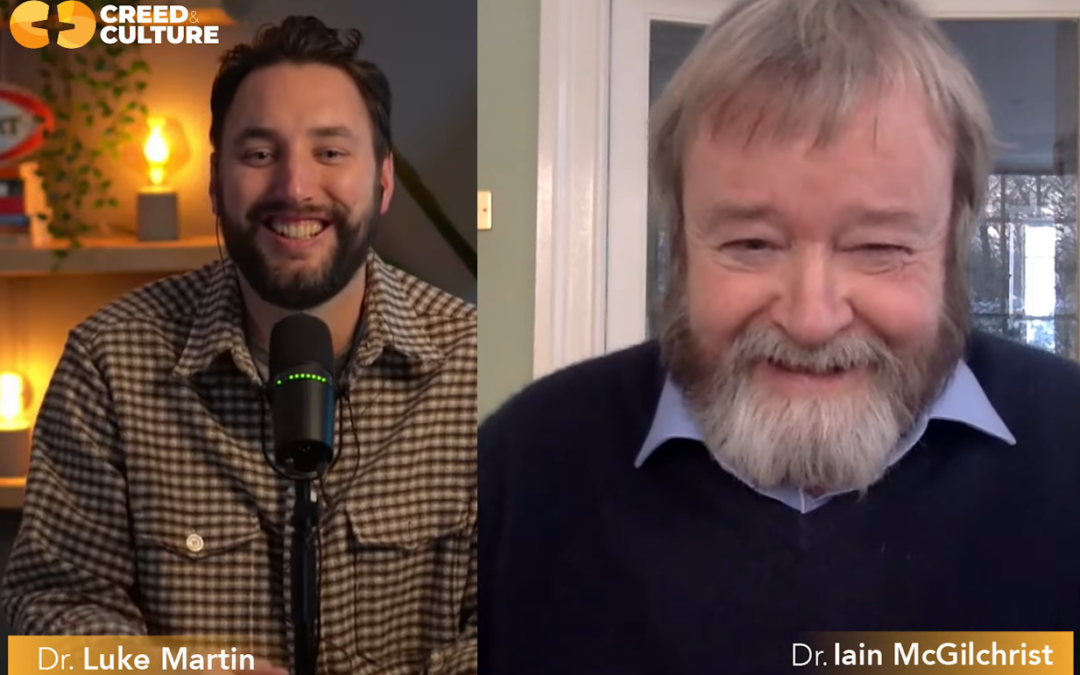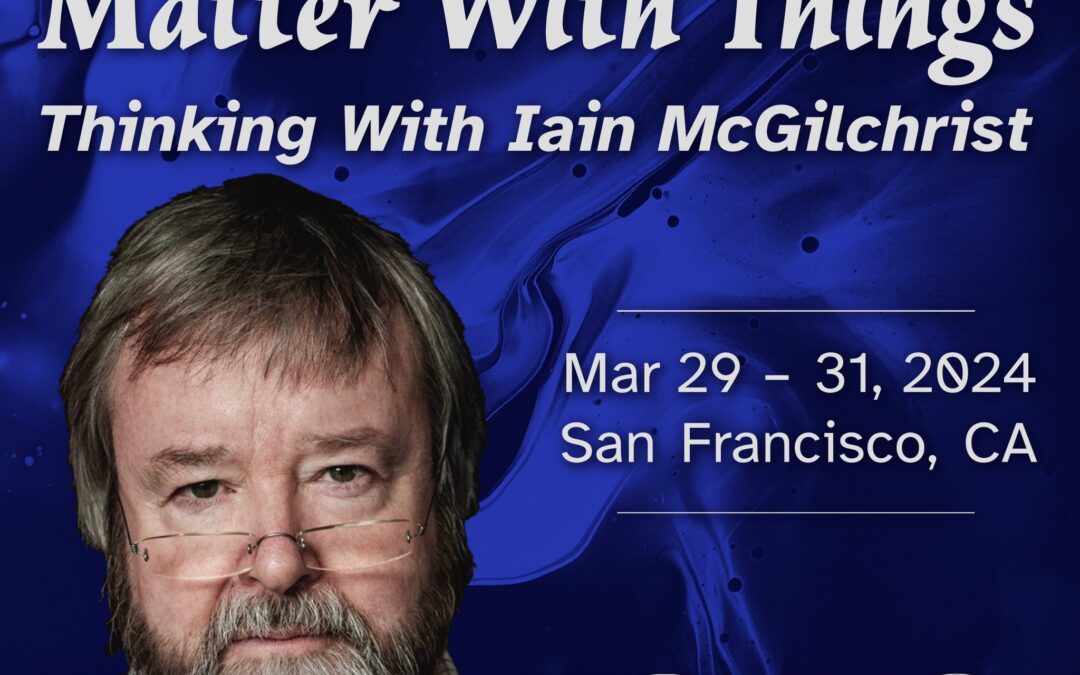


A Holistic Response to Cultural Decline with Dr Luke Martin and Dr Iain McGilchrist – Creed and Culture E:31
A Holistic Response to Cultural Decline with Dr Luke Martin and Dr Iain McGilchrist – Creed and Culture E:31 Running Time:...
2024 John P McGovern Lecture, Duke University, USA – A Medicine More Fit for Humanity
2024 John P McGovern Lecture, Duke University, USA – A Medicine More Fit for Humanity Tuesday 2nd April 2024, 5.30pm, the Great Hall, Trent Semans Centre (in-person event) Event description. We live in an age in which we cede more and more of life to machines,...
CONFERENCE VISION AND RATIONALE: San Francisco, CA – Co-organized by California Institute of Integral Studies (CIIS) & Center for Process Studies (CPS)
CONFERENCE VISION AND RATIONALE: San Francisco, CA – Co-organized by California Institute of Integral Studies (CIIS) & Center for Process Studies (CPS) Friday, March 29th to Sunday, March 31st, 2024 (in person event) Event description. Iain McGilchrist’s...
